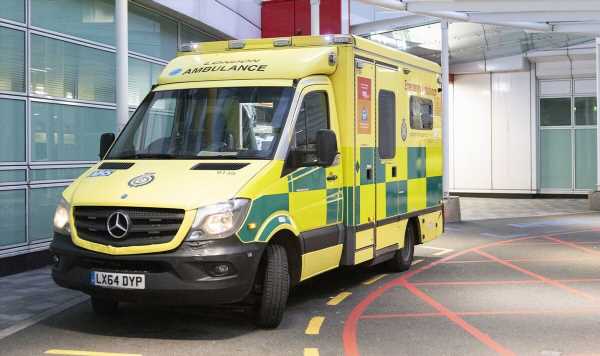Britons told do NOT call 999 unless at risk of dying during strikes

We use your sign-up to provide content in ways you’ve consented to and to improve our understanding of you. This may include adverts from us and 3rd parties based on our understanding. You can unsubscribe at any time. More info
Britons have been told not to phone 999 unless they are at risk of dying.
No10 urged people across the country to keep the emergency lines free for those with life-threatening conditions when the ambulance service goes on strike.
Industrial action over pay is set to see ambulance workers including paramedics, control room workers and technicians walk out in England and Wales tomorrow.
The army has been drafted in to help pick up patients and respond to the most serious calls, but they will not be allowed to drive with blue lights on, or skip red lights.
Speaking this morning, the Prime Minister’s official spokesman said: “Patients should continue to call 999 as normal in an emergency.
“For non-life-threatening calls, alternative support will be available via NHS 111 and where appropriate alternative forms of transport can be arranged.”
He added what extra support would be provided was “up to individual trusts”.
Crisis meetings have been held across Government this week about how to respond to the strike action, with daily Cobra meetings taking place.
This afternoon Health Secretary is also expected to hold last-ditch talks with unions representing ambulance workers to ensure the most serious of 999 calls can still be responded to.
It is expected that all category 1 calls, the most life-threatening such as cardiac arrest, will be attended by an ambulance.
Some ambulance trusts have agreed exemptions with unions for specific incidents within so-called category 2 which cover serious conditions, such as stroke or chest pain.
Ahead of this afternoon’s meeting, the Prime Minister’s official spokesman said Mr Barclay was hoping for more information about the level of impact tomorrow.
The official said: “He’s hoping for a constructive discussion ahead of these planned ambulance strikes.
“He’s concerned that some union officials still haven’t confirmed what they will cover with regards to emergency calls with their talks with trusts so far.
“We are conscious that the contingency plans we have can only do so much so he will continue to urge them to honour their commitment to provide responses to life-threatening emergency calls.”
More to follow…
Source: Read Full Article

